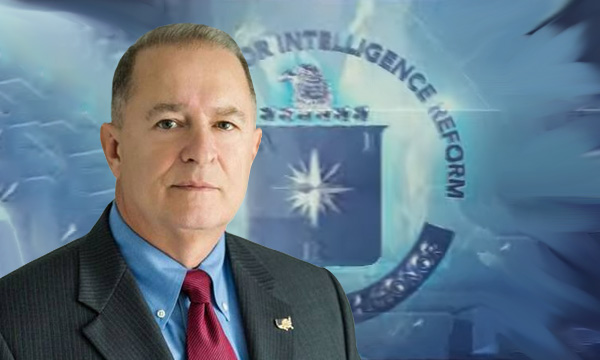Why CIA must stay out of politics and get back to the espionage business
Former CIA Director John Brennan recently lost his top secret security clearance, a move that will negatively impact his ability to make money in the lucrative world of U.S. government contracting.
Mr. Brennan complained bitterly that his First Amendment free speech rights were violated by the action — a ridiculous argument since Mr. Brennan remains a paid commentator and speaks his mind freely on NBC and MSNBC national news networks seemingly at will. In fact, the lack of a clearance will enhance Mr. Brennan’s ability to speak out on issues he thinks are important.
Not being read in to current intelligence means Mr. Brennan needs to worry less about mixing classified information with his on-air remarks or tweets and thus lowers the risk of breaking the law.
A more likely hidden agenda behind Mr. Brennan’s anger toward President Trump for pulling his clearance is that no longer belonging the club of those with access to secrets will complicate any plans by the former CIA director to hold in-depth discussions with close associates who now fill the senior ranks at the CIA.
Few outside the agency know of Mr. Brennan’s stunning success in consolidating both a disastrous vision of CIA modernization and in placing close associates into current senior intelligence positions.
Mr. Brennan made no secret of his plan to stay on at CIA had Hillary Clinton won the election 2016. And his reforms and supporters at the agency kept him in a position to be politically relevant had he maintained his clearance.
The courageous move by Mr. Trump to buck the intelligence bureaucracy and strip Mr. Brennan of the security clearance so far is the only initiative taken by the president to curb politicization at CIA. That politicization, including in intelligence reporting, reached its zenith under Mr. Brennan.
Mr. Trump seems unaware that the CIA deck is now solidly stacked against him. The agency is now in a position to become potentially a strong force in the current highly charged political environment.
The Brennan modernization plan implemented during his four years at CIA helped to better organize the CIA’s cyber warfare capabilities, as was widely announced.
But the reforms did so at the cost of nearly eliminating entirely CIA’s ability to conduct unilateral foreign espionage operations. Espionage — the stealing of secrets in support of national security — before Mr. Brennan was a central focus of CIA and the reason for its founding after World War II. It remains a key element of American national security.
The people who came up through the ranks of Mr. Brennan’s politicized CIA, however, continue to hold high-level positions. Current Director Gina Haspel selected Vaughn F. Bishop as CIA deputy director. Mr. Bishop was handpicked by Mrs. Haspel in an extraordinarily unusual and possibly unique decision that brought Mr. Bishop out of retirement for the second time to fill a senior position at CIA. Mr. Bishop previously was also handpicked by Mr. Brennan and brought out of retirement to serve in a key position as ombudsman for the Brennan modernization program announced in 2015.
The No. 3 position at the CIA, the chief operating officer (COO), also was recently announced by Mrs. Haspel. He is Andrew Makridis, who was also called back from retirement. Mr. Makridis, like Mr. Bishop, also was selected by Mr. Brennan to fill another key CIA position as head of the task force that implemented the entire modernization program. The selected but not yet publicly named head of intelligence for the National Security Council (NSC) also is a favorite of Mrs. Haspel and, again, is said to be a close Brennan associate.
Earlier in her career, Mrs. Haspel was selected for a second tour in London as chief of station, a highly unusual move. Mrs. Haspel has never been asked or offered any comment on whether she had any role in the now-infamous Christopher Steele anti-Trump political dossier even though she served two stints as station chief in London, the point of origin of the Steele dossier. Knowing the capabilities of British domestic and foreign intelligence, it is unlikely Mr. Steele produced the dossier without the knowledge and perhaps the connivance of M-6 and M-5.
During her Senate confirmation hearings, Mrs. Haspel made clear she intends to double down in supporting the short-sighted, anti-espionage reform that is the Brennan modernization program.
Mrs. Haspel rounded out her leadership team in filling the ranks of the CIA with Mr. Brennan’s acolytes by choosing a career CIA officer to be the new chief diversity and inclusion officer, a senior and influential position.
It is deeply revealing of intelligence priorities that CIA has created a senior leadership position for diversity issues but lacked an equivalent senior leadership post for unilateral espionage activities.
Nearly every country in the world of any significance runs espionage operations against the United States, including some of our closest allies. And a strong espionage program is absolutely fundamental to our national security.
CIA urgently needs to reform its espionage operations to produce real intelligence about an increasingly dangerous world. America’s national security depends on it.
• Brad Johnson is a retired CIA station chief and operations officer, and president of Americans for Intelligence Reform.





